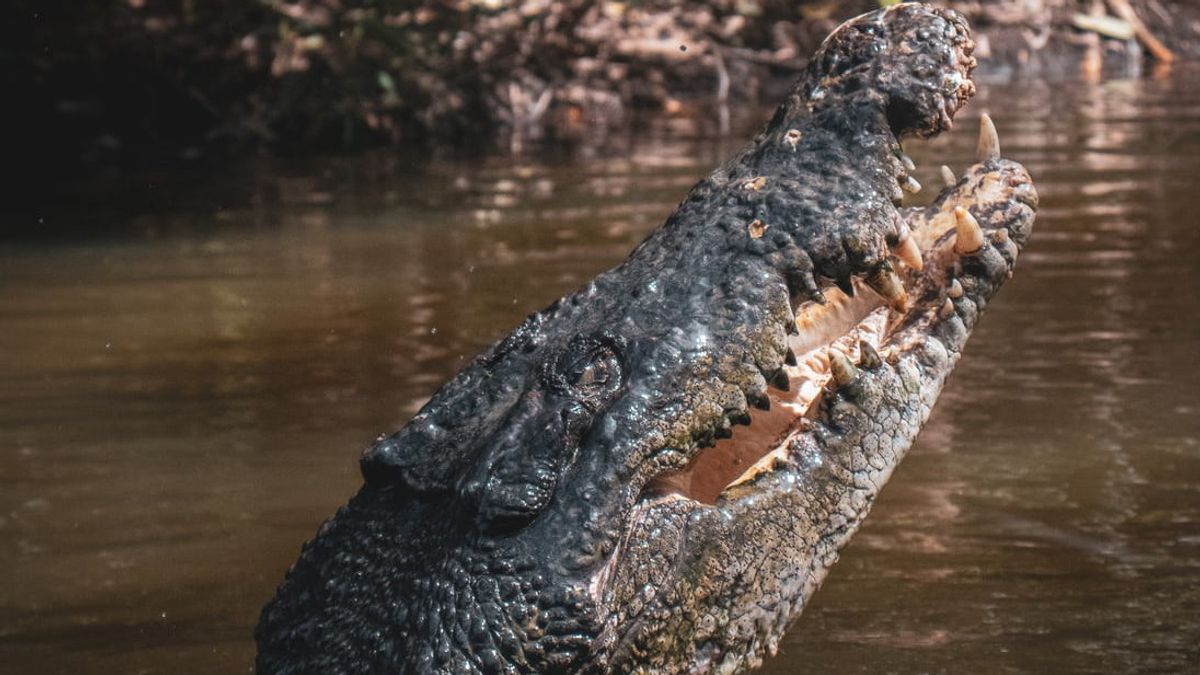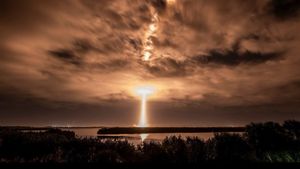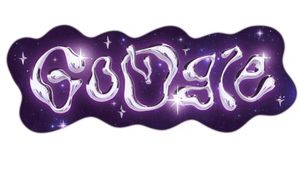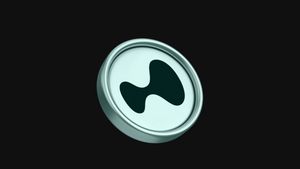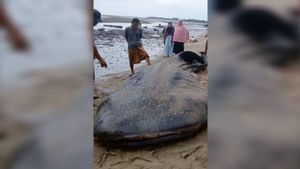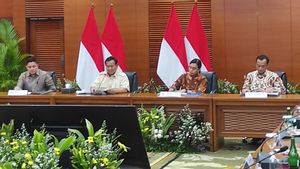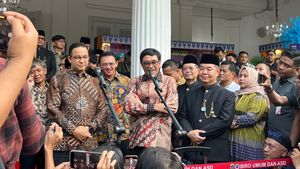JAKARTA - Crocodiles are known to often eat anything they come across, including fish, chickens, snakes and others. But what if crocodiles could eat dinosaurs?
Yes, it really happened. It was first discovered by scientists from Australia, who not only discovered a new species of crocodile, but also that its last possible meal was dinosaurs.
The crocodile fossil, dubbed Confractosuchus sauroktonos, is a dinosaur killer, the species was recovered from a sheep farm in Queensland and is believed to be more than 95 million years old.
While putting the crocodiles together, scientists surprisingly found the skeletal remains of a small juvenile ornithopod dinosaur in its stomach. The find is the first evidence that crocodiles ate dinosaurs in Australia. The fossil was first discovered and excavated by staff and volunteers from the museum in 2010.
"The discovery of small juvenile ornithopods in the gut contents of Cretaceous crocodiles is extremely rare, as few examples of dinosaur predation are known globally," said the Australian Age of Dinosaurs Museum, as quoted by Sky News, Monday, February 14.
Because the bones were too brittle and dense in the boulder to move, Dr Joseph Bevitt, a scientist at the Australian Organization for Nuclear Science and Technology (ANSTO) used neutron and synchrotron X-ray micro-CT scanning technology to identify where the bones were.
Bevitt then sent the scanned data to Dr Matt White, a research associate at the museum, who digitally prepared the specimen, a project that involved 10 months of computer processing to build a 3D reconstruction of the bone.
Dr White said the number of bones present was staggering, with 35 per cent of the crocodiles preserved. The skeleton includes a nearly complete skull, although the tail and hind legs are missing.
"At the time of its death, this freshwater crocodile was about 2.5 meters long and still growing. Although Confractosuchus did not specialize in eating dinosaurs, it would not neglect easy food, such as the remains of a young ornithopod found in its stomach." said Dr. White.
Why Scientists Call Crocodiles Eat Dinosaurs
In this case, it is impossible for scientists to identify the ornithopod dinosaur as it was partially digested, even though at the time of his death he was still a teenager and weighed up to 1.7kg.
Since the bones were found together, this suggests that the crocodile had either killed the animal directly or scavenged it quickly after death.
One of the thighbones of an ornithopod dinosaur was split in half and the other femur was bitten so hard that it left tooth marks on the surface of the bone.
"Given the lack of comparable global specimens, these prehistoric crocodiles and their final diet will continue to provide clues about the relationships and behavior of the animals that inhabited Australia millions of years ago," said Dr White.
The English, Chinese, Japanese, Arabic, and French versions are automatically generated by the AI. So there may still be inaccuracies in translating, please always see Indonesian as our main language. (system supported by DigitalSiber.id)
